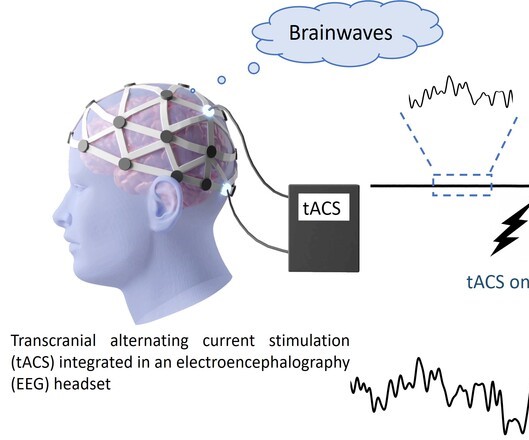Electricity Can Improve Short-Term Memory in Older Adults

Your body runs on electrical pulses that can benefit from targeted currents: Electricity applied directly to your brain could boost your memory.
It may sound scary but also magical: An electric current applied to your skull can improve mental performance a month later.
The procedure doesn’t hurt. Volunteers might feel a mild tingling, itching, or warming sensation, according to researchers at Boston University.
The scientists used a technique called transcranial alternating current stimulation (tACS), in which volunteers received weak currents through electrodes embedded in a simple cap placed on their skulls. tACS subtly alters the way brain cells communicate with each other via electrical pulses. The process is simple enough that it could be available one day in a doctor’s office or even your home.
YOU MIGHT ALSO LIKE: High Blood Pressure and Diabetes Affect Your Brain
How transcranial alternating current stimulation works
Sixty volunteers, all between the ages of 65 and 88, listened to a list of 20 words they were asked to recall later — a standard memory test.
One third of the group heard the words while receiving tACS on a region of the brain called the prefrontal cortex, which plays an essential role in your attention, impulse, and memory abilities.
Another group received tACS on a different brain region, the parietal lobes, which process information about touch, pain, temperature, and the position of your limbs. The control group wore a cap of electrodes but didn’t receive any current.
The sessions lasted 20 minutes and were repeated over four consecutive days. The people who received the current in their prefrontal cortex were better able to remember the first words on the list on the second and fourth day — and a month later.
The results suggest that their long-term memory improved. Those who received current in the parietal lobes had better overall memory by days three and four, along with a month later.
By day four, people who had received current in either region remembered around four to six extra words. The participants who didn’t receive any current didn’t improve.
When the researchers changed the type of frequencies the electrodes sent, the volunteers didn’t improve. The tACS currents needed to match the normal brain wave pattern of the region.
A separate research team in China also found improvement in working memory for words using tACS on the prefrontal cortex.
Both groups observed that the effect of the current was greater on people who had poorer memory at the beginning of the experiments.
It’s not clear that the improvement lasted beyond a month or could be extended to real-life situations. That’s generally a problem when people use brain training games. Research suggests that players get better at the games but aren’t benefiting otherwise.
Is it dangerous to apply electrical impulses to your brain?
You may have heard unpleasant stories about the early days of a treatment for depression called ECT, or electroconvulsive therapy. But over its 80-year history, ECT has become a safe for people who live with severe depression or bipolar disorder that doesn’t respond to other methods.
The current involved in the memory experiments is much milder.
What you can do
Until the day your doctor gives you an electrode studded cap to wear in the waiting room, you can take action on your own to stay sharp as you age. The best strategy is to stay healthy, overall. That means getting regular sleep, physical exercise, and social time.
Just about anything that is good for you may boost your memory. For example, eating deep-sea fish like salmon and sardines or taking fish oil supplements may boost memory. Meditation may help, too. On the other hand, there is some evidence that drinking sweetened soda is linked to poorer memory and so is obesity.
Updated:
July 19, 2023
Reviewed By:
Janet O'Dell, RN